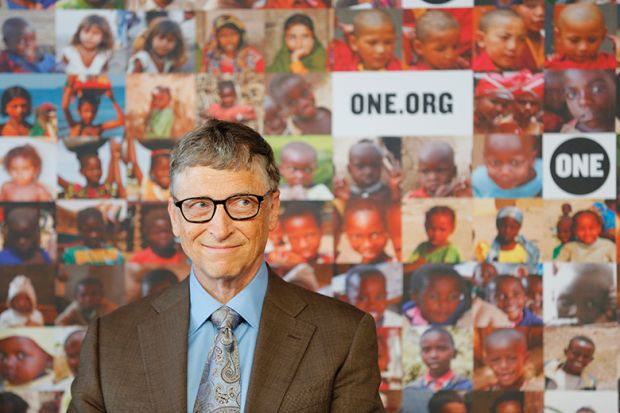Immanuel Kant once remarked about large donations by wealthy people that “having the resources to practise such beneficence is, for the most part, a result of certain human beings being favoured through the injustice of government, which introduces an inequality of wealth”. He went on: “Under such circumstances, does a rich man’s help to the needy, on which he so readily prides himself as something meritorious, really deserve to be called beneficence at all?”
About two centuries later, Isaiah Berlin took aim at the philosophy of extreme libertarians with a witty remark: “Total liberty for the wolves is death to the lambs.”
In this erudite study, Stanford University political philosopher Rob Reich quotes these and other gems from the history of ideas to explore what he calls the “plutocratic bias” inherent in large-scale philanthropy today. He treats readers to rich insights from enlightenment philosophers onwards who have criticised the assumption that mega-giving from the mega-rich is something to celebrate.
Focusing on the US, Reich points out that there is very little evidence that large-scale giving actually serves a distributive justice function, and considerable but neglected evidence that it can even make inequality worse. US philanthropy reduces the government support available for social services through a regressive subsidy that favours the rich because of how tax relief is structured. Most Americans assume that this subsidy eventually trickles down towards people who need it the most, but the liberty to give freely to an indiscriminate array of tax-exempt organisations means that much charity ends up plumping the salaries and overheads at mega-churches, or subsidising university professors such as Gregory Mankiw, a Harvard economist best known for his staunch defence of steep wealth inequalities (“Defending the one percent” is the title of one recent article).
Reich’s compelling analysis brings together earlier research, some of it conducted with philosopher Chiara Cordelli (who co-authors one chapter), on the reasons why philanthropy often leads to inequitable outcomes. This book is not a polemic, but he uses refreshingly direct language in places, pointing out that the “plutocracy of the PTA” – the power wielded by parents’ associations at public schools – leads schools in wealthier areas to amass eye-watering voluntary contributions that offset declining government spending on school infrastructure or technology. But this charity reaches only a select few, while schools in poorer neighbourhoods languish, reproducing inequality in a systematic way.
Reich’s important book goes one beyond Kant’s claim that even when it helps the needy, philanthropy deserves criticism because it lets wealthy people pass off their entitlement as fairly earned. Just Giving demonstrates that there is scant evidence that US philanthropy does actually help the needy. But it says little about Kant’s main insight: that great wealth itself stems from unjust government policies. A comprehensive political theory of philanthropy, which Reich helps to launch but does not deliver, should explore the rent-seeking and patronage that underpin wealth divides. From a normative perspective, he undermines his ultimate goal to render philanthropy more egalitarian because he does not draw on available scholarship detailing the ways that US wealth is produced through exploitation in the first place. As wealth concentration worsens, even Berlin’s cutting remark may need reconsideration and amplification. The real problem with “total liberty” for the wolves is that it deters study of the mechanisms and people who are bringing the lambs to slaughter.
Linsey McGoey is reader in sociology at the University of Essex and author of No Such Thing as a Free Gift: The Gates Foundation and the Price of Philanthropy (2016).
Just Giving: Why Philanthropy is Failing Democracy and How It Can Do Better
By Rob Reich
Princeton University Press 256pp, £22.00
ISBN 9780691183497
Published 27 November 2018
后记
Print headline: Charity favours the benefactors




